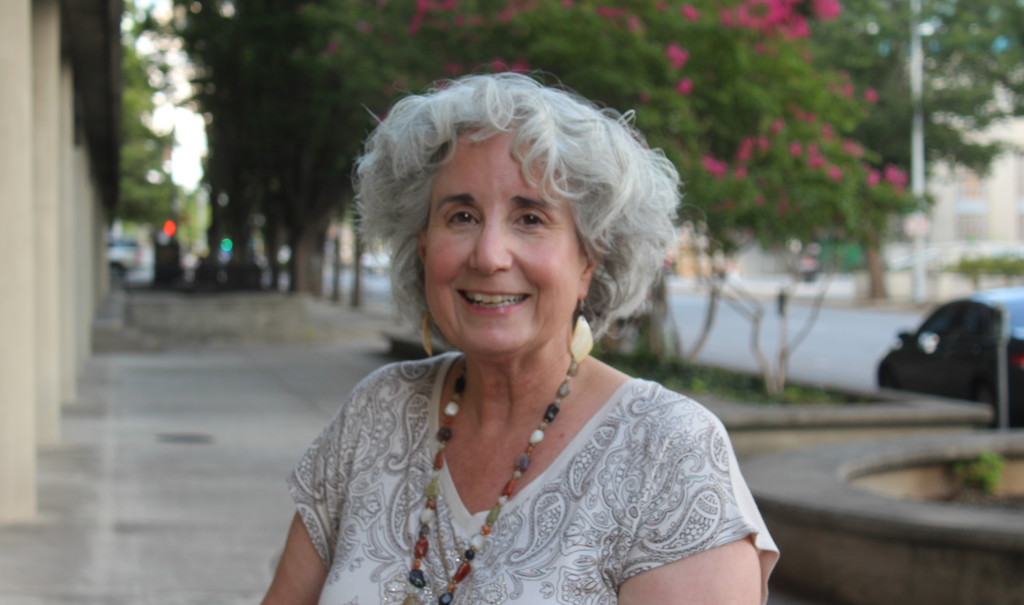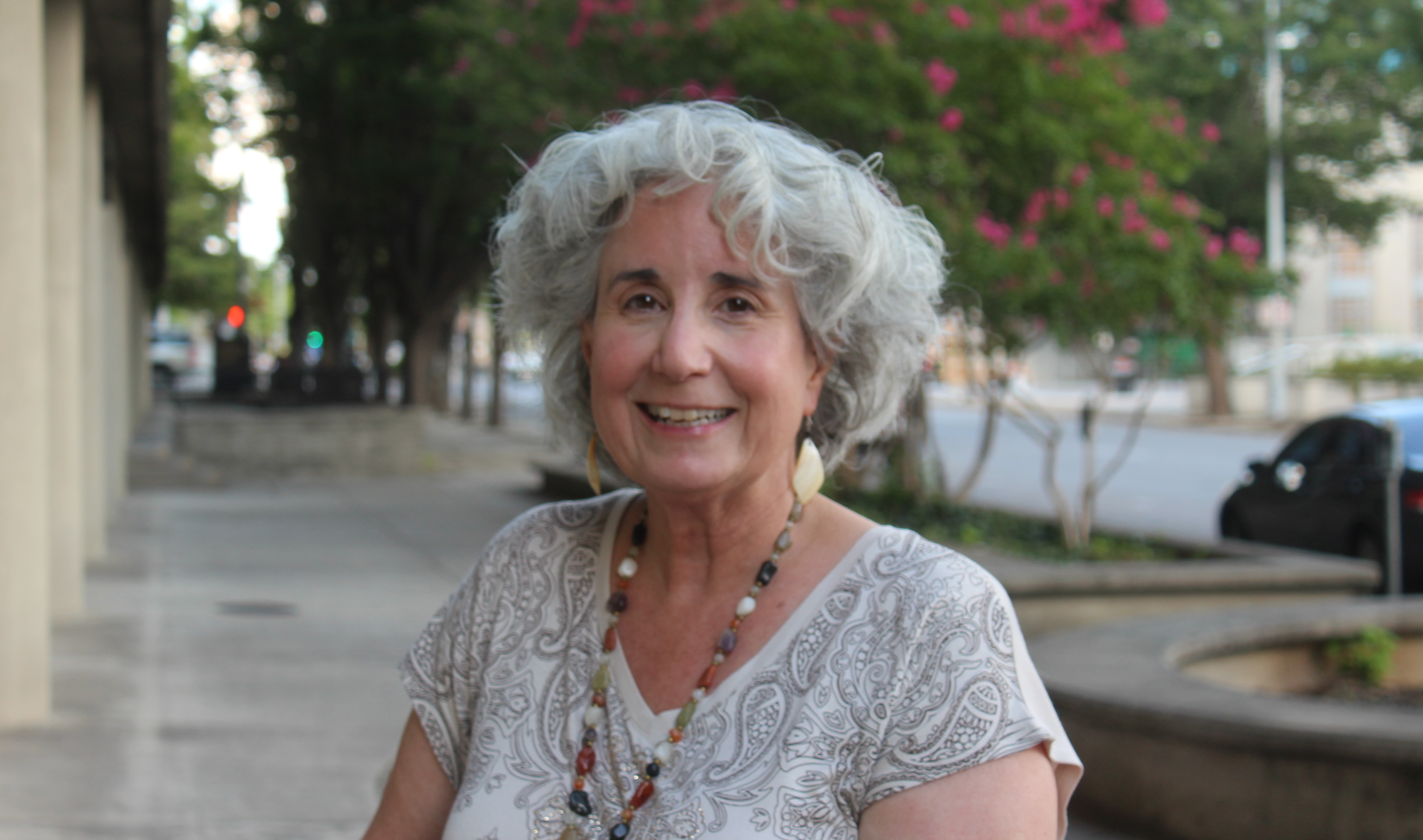By Ariel Worthy
The Birmingham Times

After 18 years as executive director with City Action Partnership (CAP), Teresa Thorne will retire Aug. 5.
“I’m going to miss riding my bike downtown and seeing all of the new growth,” said Thorne, who plans to write fulltime. “I’m going to miss the people that I work with.”
CAP is familiar to many in the city. It provides services such as giving jumps to vehicles with dead batteries, putting gas in empty tanks, putting air in flat tires, removing graffiti and providing security escorts.
Before her time at CAP, Thorne was a police officer with the Birmingham Police Department and eventually became a captain. She was the first Jewish female on the force. It was after her friend, former police captain and former executive director of CAP Dennis Blass offered her the job that she decided to work at CAP.
“He asked if I wanted the position and he pretty much kept asking me until I did,” Thorne recalled. “I thought I was going to only be here for 10 years; it’s been longer than that. The people here have pretty much become family for me.”
Thorne is also vice president and program chair of Alabama Writers’ Conclave (AWC), which supports the development of writers, and is one of the oldest continuing writers’ organizations in the country. They are also responsible for nominating Alabama’s Poet Laureate.
“This was my first year to plan the conference,” Thorne said of the annual AWC conference held at the Alabama School of Fine Arts. “I just moved into this position two years ago. Next year I’ll do the conference again and I will hopefully, if the board is willing, become president.”
Writing has been a passion for nearly her entire life. Her first memory of writing was when she was 10 years old.
“I wrote a story about a little girl who gets lost in a forest trying to chase a magical fox,” said Thorne, who writes under the name of T.K. Thorne. “I got about halfway through and I couldn’t figure out what the end was. I still have that story somewhere and one day I’m going to go back and finish it.”
Thorne, a Montgomery native, is author of the award-winning novel, Noah’s Wife, as well as two other books: Angels at the Gate, the story of Lot’s wife from the Bible, and the historical, non-fiction book, Last Chance for Justice: How Relentless Investigators Uncovered New Evidence Convicting the Birmingham Church Bombers.
In Noah’s Wife and Angel’s at the Gate, Thorne considers the two women feminists for their time.
Her inspiration for Noah’s Wife was from a sermon.
“I heard a person say that when they were in church their pastor preached a sermon and mentioned that Noah’s wife only had one line in the Bible, and no name,” Thorne said. “That excited me.” From there, Thorne said she had a vision of a “big blank page” for Noah’s wife.
“I said ‘this isn’t right,’” Thorne said. “She had a whole life, and I could write it.”
Thorne researched the time period and the culture. “I wanted to write as honest as possible. I learned that there was a flood in the Middle East in about 5,500 B.C.E,” she said.
She also consulted with geologists about the events of the floods and in Sodom and Gomorrah.
Which each lead character, Thorne makes them unique for their time period. Na’Amah, the name given to Noah’s wife, had Asperger Syndrome.
“I didn’t set out to give her that, but I did diagnose her,” Thorne said. “She just knows she’s different. She cannot lie and she thinks everything is very literal to her.”
As a writer, Thorne said writing a character like Na’Amah allowed her to step back and look at the culture from a different perspective.
In her most recent novel, Angels at the Gate, Thorne tells the story of Lot’s wife, Adira. She also gives Adira -whose name means “strength” – a unique story.
“She grew up as a boy,” Thorne said. “That allowed her to also express herself without the constraints of women at the time.”
In the book, Adira is the daughter of a famed merchant, Zakiti. She and her father travel often, and pretending to be his son gives her more freedom.
“She also had to figure out who she was as a woman, too,” Thorne said. “So it was her journey through all of that.
Thorne is currently working on two books now, both in different ways about Birmingham, she said.
One project is about the history of secret spies and unsung white allies of the Birmingham Civil Rights Movement.
“That is a large project, and I’ve learned so much about civil rights history, particularly in Birmingham,” Thorne said. “I’ve interviewed lots of interesting people.”
Her other book is what she calls her “fun book.” Thorne, who was the first Jewish female officer for the Birmingham Police Department and eventual captain, was able to use her personal experience for this novel.
“This one is about a rookie Birmingham Police detective who discovers she’s an odd witch,” Thorne said. “I will use my law enforcement background to influence the story.”
Thorne said she enjoys this one because it doesn’t require a lot of research. It’s also an opportunity for her to write about the city she knows well.
“Most southern writers write about southern things, and although I do write about that with the Birmingham books . . . these two books is kind of like coming home.”





